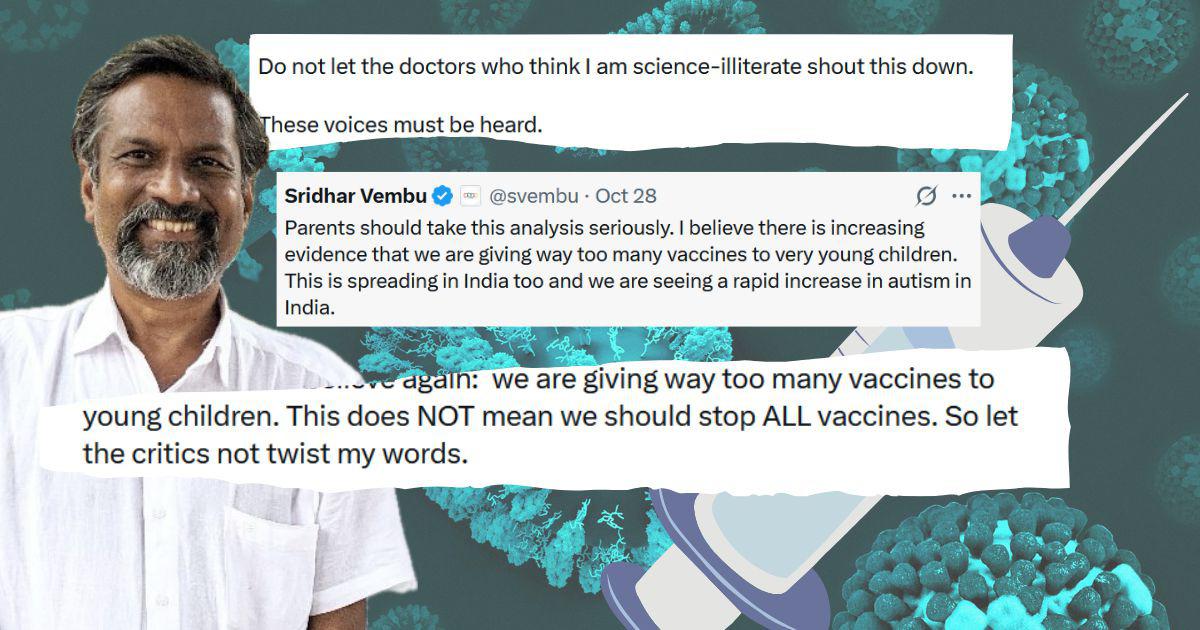Sridhar Vembu’s vaccine scepticism is a dangerous foray into anti-science disinformation

When Sridhar Vembu, the founder of Zoho, took to social media on October 28 to endorse a controversial report linking vaccines to autism, he lent his public credibility to claims that are not just blatantly unscientific, but also politically dangerous.
The McCullough Foundation Report, written in collaboration with discredited figures such as British anti-vaccine activist Andrew Wakefield, presents itself as a comprehensive scientific review of the causes of autism. It is, however, a carefully curated long-form opinion piece that blends the stylistics of evidence-based medicine with the logic of conspiratorial grievance.
Vembu’s decision to elevate a document that asserts, against overwhelming evidence, that routine childhood vaccination is the “most significant modifiable risk factor” for autism, is emblematic of a broader moment in which technocratic elites and a fragmented media ecosystem converge to recast fringe scientifically dubious assertions as “brave dissent”.
This appeal in his tweets to “parental voices”, “censored doctors” and “gut-brain connections” draws directly from a repertoire that has long cast the scientific mainstream as dogmatic and the questioning outsider as heroic. It is, then, worth examining the social and political undertones of his arguments.
Performative uncertainty
The McCullough Foundation Report claims to be a comprehensive review on the determinants of autism. It features a long reference list, domain-specific language, and an evidentiary architecture that mimics systematic medical reviews.
But it is a carefully orchestrated...
Read more
News